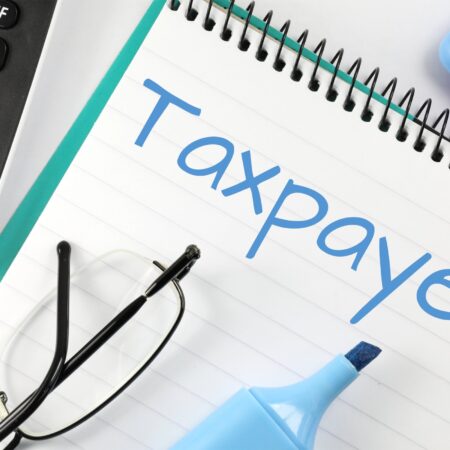
Pakistan Institute of Development Economics
- Home
Our Portals
MenuMenuMenuMenuMenuMenuMenu - ResearchMenuMenuMenuMenuMenuMenuMenu
- Discourse
- The PDR
- Our Researchers
- Academics
- Degree Verification
- Thesis Portal
- Our Portals

Pakistan’s Happy Taxpayers
People have been discussing and debating many aspects of the recently presented Federal Budget 2021-22. One aspect which has come to my mind is the issue of taxes and tax payments. One often comes across the attitude, ‘why should I pay tax’ in Pakistan. This attitude reflects the desire of the public to see ‘value for their money’. When the public fails to see their taxes being put to good use, it encourages non-payment. The solution is obvious:
- put tax money to good use, and
- tell the taxpayers how their money is being spent.
Suppose we scribbled something like this inside metro buses: ‘We have established this metro bus service with taxes paid by you. Pay your taxes to enjoy more and better public services.’
Similar notices may pop up inside public hospitals and schools, near motorways, flyovers and bridges in every nook and corner of the country. A look at the notices tells people that at least part of their tax money is being put to some use. Imagine the impact on the ‘why should I pay tax’ attitude. I for one, will appreciate the fact that my contribution is being put to good use and acknowledged.
We do not always put taxpayers’ money to good use. The general perception is that it ends up in Swiss accounts and in Dubai malls or supports the lavish lifestyles of public officials. The public is doubtful about whether these officials may always fully do what they pay them for — from the taxpayers’ money. So how do we combat this? Perhaps like this:
Consider the case of the typical Prime Minister performing Umrah during the last days of Ramazan. The news spreads and friends and relatives queue up to be taken along. The PM will board his special plane, while his 100-plus entourage boards a separate plane brought alongside on the tarmac.
Now suppose while climbing up the steps of his special plane, the prime minister notices the words embossed just over the entrance to the aircraft – ‘Pakistanis Have Paid for this Trip’. He postpones the trip and the next day boards a regular PIA flight to Jeddah. Only his immediate family accompanies him.
Assume (perhaps rightly), taxpayers pay for the President’s kitchen. The president arrives in the dining room for dinner with his family and there are many lavish dishes on the dining table. But the family, upon noticing ‘paid for by Pakistanis’ embossed on the corners of white Correlle dishes, moves back to the lounge without having dinner and order something on their own from a local eatery that delivers. Meanwhile, the President tells his staff that from the next day on, he would pay for kitchen expenses himself.
How about scribbling on the walls public servants’ offices; ‘salary paid for by Pakistanis’? Here is a glimpse of the potential benefits. A villager goes to the police station in the dead of night to tell the SHO that someone has stolen his buffalo. But the SHO gets angry with the villager for disturbing his sleep. So they get into a heated argument in the SHO’s office. Finally the SHO stands up to tell the villager in the local colloquial ‘I am not your father’s servant’.
But at this moment, he glimpses ‘salary paid for by Pakistanis’ scribbled on the wall in front. The SHO sits down, has a glass of water, registers the FIR and sends a raiding party to recover the poor man’s buffalo.
Twenty-five years hence, we amend the NAB ordinance to take off the plea-bargain clause. The authorities investigate and sentence former Prime Ministers and Ministers for corruption. The courts now decide cases of murder and property dispute within months rather than decades. The younger generation is not familiar with the word ‘bhatta’; and we pay the unemployed a decent stipend out of tax revenues raised.
By then, PTV News, run on taxpayers’ money, has become the most reliable source of independent and timely news. Its talk shows earn the best ratings because of their informative content and unbiased handling by anchors. Also, we have sold off government-owned housing in urban centres, including the ones for the armed forces, and run at the taxpayers’ expense. We pay all government employees is enough to afford decent housing. Patwaris, paid out of taxpayers’ money, no longer provide men for the rallies of the party in power.
We no longer spend taxpayers’ money on inauguration ceremonies of metros, dams and conferences. Also the president and ministers do not grace convocations. We no longer see advertisements, made at taxpayers’ expense, glorifying the policies of the party in power. Healthcare is completely in the public sector, there are no private schools and there are no out-of-school children — all study till grade 12 is at taxpayers’ expense in public schools. The chauffeur of the Prime Minister drives his own son and the son of the Prime Minister in a modest car to a single school, and the two children study together. The tax-to-GDP ratio has now risen phenomenally — to reach 40%!
Editor’s Note: An earlier version of this article originally appeared in Dawn on August 23rd, 2015. https://www.dawn.com/news/1202207
Download full PDF


